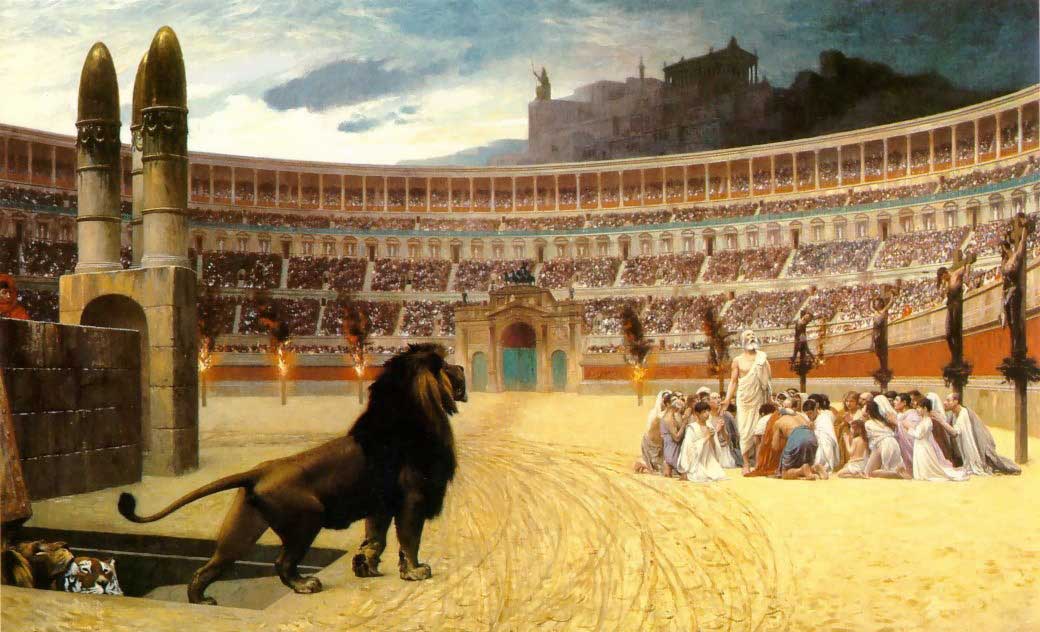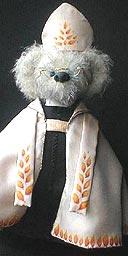Nevertheless, for the past decade I have been enchanted with the thought of planting and tending to trees. It is hard to surpass these wild and magnificent creatures. Whenever I pass through Canberra now, no visit is complete without some time spend wandering the forests and meadows of the National Arboretum. My imagination turns from Bail's Holland and Mr Cave to Tolkien's Ents - the shepherds of the forest - who protected the woodlands from the perils of Middle-earth. My mind turns too to a beguiling account of King Solomon in the Bible. Renowned for his wisdom and 'breadth of understanding as vast as the sand on the seashore', Solomon is a man who 'would speak of trees' - from the greatest pine to the smallest shrub. There's something Edenic, even Adamic, about this scene in 1 Kings. Solomon's wisdom consists not only in his compositions of proverbs, songs, poetry, and pithy little sayings. He knew and accounted of animals, birds, reptiles, fish, and trees.
What staggers me whenever I walk among the trees is the sheer vastness of type and kind. I surely would have been content with 10-20 species I think to myself. The fact that there is somewhere between 60,000-100,000 different species on the planet seems a little gratuitous. It is this abundance of arboreal life which sustains life.
We easily forget how bound our lives are to trees. Not only do I mean existentially; but scientifically and culturally too. From the air we breath to the paper we write on, from the shade we sit in to the desks we sit at, from the leaves we admire to the logs we burn on the fire; our lives are connected to the gums, cedars, and palms which cover this planet. Without each other we cannot be ourselves. And let's not be so anthropecene for a moment. It is not only us, but birds, insects, mammals, soil, and other plants which depend on trees too.
In the state where I live, since Semptember this year, almost 3 million hectares of land have been burnt and con summed by fire. We can put a number on some of the devastation these fires have wrought on human life. So far there have been six fatalities. 724 homes destroyed. 276 homes damaged. What's harder to quantify is the impact on the flora and fauna. Who knows how many trees have been lost?
At first that may not seem so significant for an ecosystem which for at least 60,000 years had been cultivated by fire. But after 23 decades of reshaping and re imagining the Australian landscape and climate, the species which have made this island continent their home for millenia appear to have reached breaking point.
Today it was revealed that a quarter of eucalyptus trees are threatened by extinction. It's not just this years fires (though they have burnt much of our local eucalyptus forests); its urbanisation and agriculture which have lead to this predicament. Personally, having grown up among gum trees (watching the lorikeets and parrots feed on their flowers in February each year), and having swept up more than my fair share of gum leaves, it's hard to imagine life in Australia without this endemic species. Their loss would be a loss for us all.
As I write this, my family is currently observing the season of Advent. It's a season which I have written about often before. We prepare ourselves for Christmas by a. joining Israel in their longing for an end to exile and God to come; and thereby looking to the time when Jesus will come again in glory to judge the living and the dead. And as my city is choking on smoke, and I find charred leaves in my yard - carried over 60kms by the winds from the nearest fires - I can't help but reflect on trees in the Bible. The are, literally and figuratively, a gift to be received and delighted in. They are a symbol of pride and an object of destruction. They are a depiction of hope for Israel and the nations of the world. They are the personification of obedience and hearing God's word. They are twisted and ruined, so that a tree bears God's Son to his death. They are sign of life, bearing healing in their leaves for all the world. The desire for everyone to sit under their own vine and fig tree is the desire of advent. The story of trees in the Bible weaves together the strands of beauty, justice, expectation, and salvation which make up the advent tapestry.
So what might advent offer us during the current climate and fire crisis? What might advent offer us in the midst of drought and heat waves? While some of my ecclesiastical peers would see the current conflagration to be a proleptic taste of the fire that is to come, the hope of advent is not annihilation but restoration. In one of my favourite quotes from French theologian John Calvin, we are told that: 'no part of the universe is untouched by the longing with which everything in this world aspires to the hope of resurrection.' Advent teaches us to long for and to live in light of the hope of the resurrection. We look for the one who came at Christmas to come again to mend, heal, restore, and remake his world. And that should give us reason to pause and question the tone and tenor of our lives. God made a world which was not only ontologically good and aesthetically good, but was hospitable for us and the conditions which we need in order to flourish. It was good for us. Faced then by the challenges of environmental degradation, perhaps we should attend to the Bible's diagnosis of the human condition: the voracious, intense, obsessive, and destructive misappropriation of God's good gifts in creation.
But if advent is a season for attuning our desires to the desire of the nations, than that will lead us away from the desire to grasp after and consume the natural resources we see around us. In other words, it should lead us in our pneumatic transformation towards becoming more truly human, and away from the sins and pride which facilitates the doom of our fellow creatures.
As we await the redemption of all things at God’s hand, advent trains us to deal with our disappointment and discontent with our governments. Advent announces that time is short for all secular authority. There will come a time when queens and presidents, prime ministers and premiers will be held to account their dispensing of justice and provision of peace as they lay down their authority before the lamb who was slain. John's apocalypse warns us that God hates those who destroy the earth (Revelation 11.18).
Woe then to governments that neglect their duties to preserve life.
Woe to governments that hide behind a smokescreen of science denials and obsfuscation.
Woe to those governments that would suppress the reality of things.
That will be held accountable for their lies, spin, and sloth.
So in this season of advent, as the smoke clings to our clothes and our skin, and the trees perish, advent teaches us to mourn, to lament, to pray, and to look for God's blessing on all the creatures he has made.
Let not the trees and animals suffer on the altar of human pride and vain glory.
In a lecture he gave in York several years ago, Rowan William addressed what it look like for us to co-exist with the flora and fauna of the world:
In Genesis, humanity is given the task of 'cultivating' the garden of Eden: we are not left simply to observe or stand back, but are endowed with the responsibility to preserve and direct the powers of nature. In this process, we become more fully and joyfully who and what we are – as St Augustine memorably says, commenting on this passage: there is a joy, he says, in the 'experiencing of the powers of nature'. Our own fulfilment is bound up with the work of conserving and focusing those powers, and the exercise of this work is meant to be one of the things that holds us in Paradise and makes it possible to resist temptation. The implication is that an attitude to work which regards the powers of nature as simply a threat to be overcome is best seen as an effect of the Fall, a sign of alienation. And, as the monastic scholar Aelred Squire, points out (Asking the Fathers, p.92), this insight of Augustine, quoted by Thomas Aquinas, is echoed by Aquinas himself in another passage where he describes humanity as having a share in the working of divine Providence because it has the task of using its reasoning powers to provide for self and others (aliis, which can mean both persons and things). In other words, the human task is to draw out potential treasures in the powers of nature and so to realise the convergent process of humanity and nature discovering in collaboration what they can become. The 'redemption' of people and material life in general is not a matter of resigning from the business of labour and of transformation – as if we could – but the search for a form of action that will preserve and nourish an interconnected development of humanity and its environment. In some contexts, this will be the deliberate protection of the environment from harm: in a world where exploitative and aggressive behaviour is commonplace, one of the 'providential' tasks of human beings must be to limit damage and to secure space for the natural order to exist unharmed. In others, the question is rather how to use the natural order for the sake of human nourishment and security without pillaging its resources and so damaging its inner mechanisms for self-healing or self-correction. In both, the fundamental requirement is to discern enough of what the processes of nature truly are to be able to engage intelligently with them.
- Rowan Williams, Renewing the Face of the Earth: Human Responsibility and the Environment, 2003.













 s Doctor Williams I stumbled across by on Church,...enjoy.
s Doctor Williams I stumbled across by on Church,...enjoy.